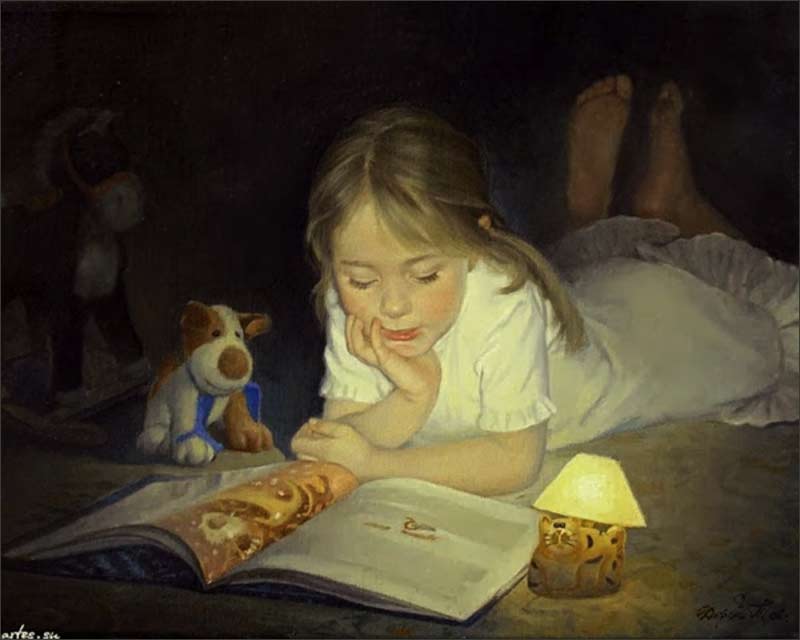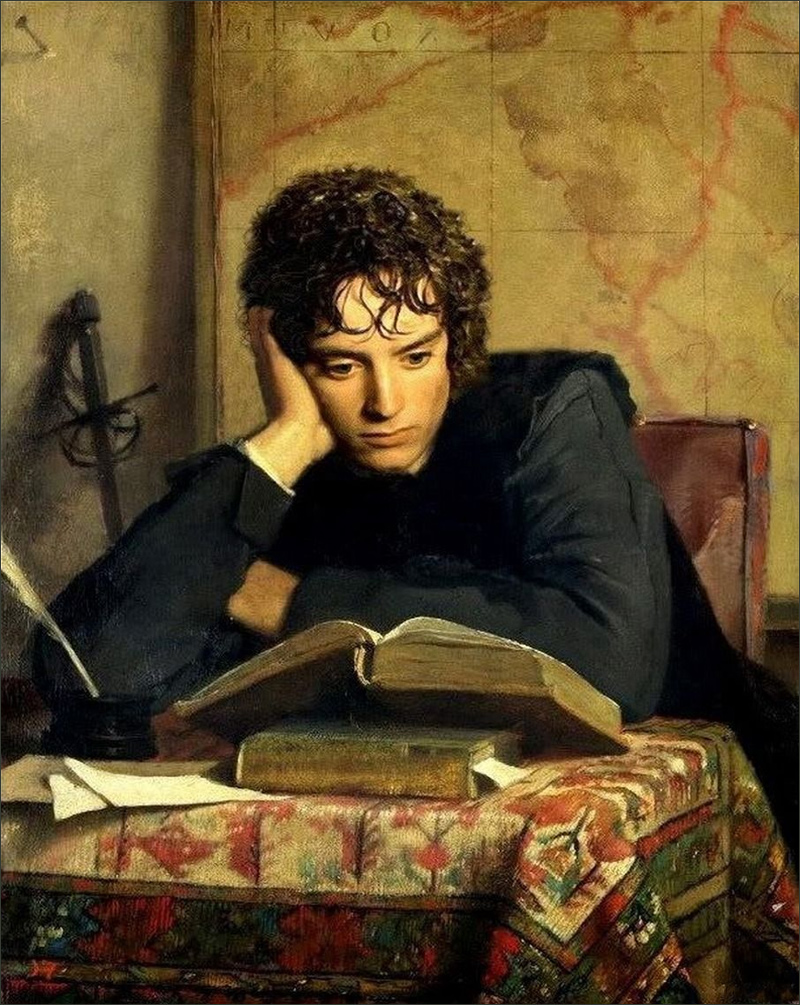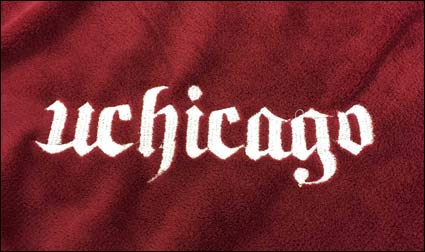Forty seven days ago I penned a visceral (for me, at least) account of the pandemic and my reaction to it. I focused on the physical aspect, explaining how I would burn off the crazy with intense and prolonged exercise. That has gone well.
The simple but strenuous task of identifying and analyzing how I felt about the unprecedented events of this Coronavirus event was valuable. How would I react to the stay-at-home orders; what I was doing and why. That helped me. I am hesitant to post any of this. My personal choices during the pandemic are of interest to almost nobody.
But I start back to my next academic year next week, and I will be busy with that. So before that happens I want also to explain to myself what has happened in my interior/intellectual life since the SARS-CoV-2 virus arrived to Ventura, California from Wuhan, China. I want to review and make sense to myself of how I have spent the many hours during this lockdown not only in the physical/external respect, but in the interior/intellectual aspect.
That is important. To me at least.
I wrote around the time Time to Tend of the Interior World. That was a good start, but much has happened since then.
So many of my friends were telling me about the shows they binge-watched during the quarantine. Faced with so much time stuck at home, that is how they got through the days since March.
I decided to imitate them.
So I watched the first episode of the Mandalorian series from the Star Wars saga. The George Lucas scifi soap opera is now owned by Disney. So of course the show was pretty stupid. More to the point, The Mandalorian appears to have been made for an audience of 12-year olds. I watched the first “pilot episode” and then was done. Disney Star Wars spin-offs were not a good use of my time. Next, I started watching the “Harry Bosch” series because it looked decent and was free on Amazon Prime. I watched the first four episodes and they were satisfactory, but I did not want to go down the rabbit hole of spending hour after hour in the gutters with LA police and the resident scumbags in a police proceduralco. My brother highly recommended the Narcos in Columbia and Mexico shows on Netflix, chiefly because of the beautiful women in the show. But I did not want to cozy up to drug dealers and that miserable business hour after hour. My dad recommended Ozark. No thanks.
Maybe there is this simple problem: I can rarely summon nowadays the patience to sit still through a two-hour movie. To spend God only knows so many hours of the entire “Breaking Bad” series is almost unthinkable. Could that saga really be worth 62 hours of my previous time?
Maybe. Maybe not. I will never know.
So I moved on and devoted my pandemic intellectual life to three pastimes: a few famous old tennis matches, plenty of classical music, and loads of good ol’ fashioned book reading. I have read 30 books since March.
First of all, I watched some tennis matches. The grand-slam tennis tournaments have been cancelled this year, but all of them have graciously made available some of their more entertaining matches from the past on their Youtube channels. I had never seen most of these matches, as I am not a huge viewer of these in even normal times. So I watched these matches:
- Federer vs. Safin
A gutty, hard-fought, sweat-fest of a contest of wills which proved that, alas, Roger Federer is human. That last shot when Federer misses and falls on the ground is powerful stuff.
- Roddick vs. Nalbandian
A see-saw battle where the better player, I think, did not finally win. Five sets of tennis war and physical and mental toughness.
- Santoro vs. Safin
A wonderful match of differing tennis styles with “the Magician” wearing down the ball-basher and showing how patience and resilience counts for so much in sport.
- Clijsters vs. Sharapova
Kim Clijsters is just too solid against a flustered 18-year old Maria Sharapova.
- Henin vs. Williams
Justine Henin is so wonderful to watch play. She covers the court so well, has wonderful technique, and never quits. She will run all day long. She is like an angry gnat that will not go away.
These matches were all great fun to watch!
Most tennis matches are only so-so in quality. But every once in a while there is a gem of a match — high-quality, unpredictable, suspenseful. There are maybe one or two such matches every year. The grand–slam tournaments have made many of these unforgettable matches available free of charge on Youtube. I am thankful for that. Several of these matches were almost five hours long, and I watched them over two or three sittings.
So what was a good use of time. I rarely if ever watch women’s tennis matches, but those two with Henin were well worth it. Strange pandemic takeaway #1: watching WTA tennis, and enjoying it.
Secondly, I listened to a lot of classical music. And that leads me to strange pandemic takeaway #2: preferring Beethoven to Mozart.
Usually, I find Ludwig von Beethoven too emotionally exhausting to listen to at any length. Beethoven can be disturbing, while Mozart is often soothing. I have usually preferred Mozart and what it often offers me. But I have preferred Beethoven these past few months.I wonder why? The tenor of the times has changed? It is more of a Beethoven-ish time than a Mozartian one? Perhaps so.
So I listened to Beethoven’s Piano Concertos #1, 2, and 3. I avoided the Fifth, as I have heard it so many times it is on the verge of becoming a cliche to me.
And I most particularly enjoyed Moonlight, Pathetique, and Appassionata. I listened and enjoyed them immensely.
Then I moved on to the Grieg, Schumann, Mendelssohn, and Chopin piano concertos. I watched them all on Youtube in front of my giant flat screen TV for video and Bose 300 sound bar and sub-woofer for sound. I enjoyed Rach’s Theme by Paganini. Various other pieces. Lots of my early baroque music from France in the late 16th and early 17th century. I enjoyed the inimitable Daniel Berenboim’s youtube channel time and time again. Berenboim surely is looking mighty old nowadays, but he is a gem and a wonder. I will mourn his passing. There is nobody quite like him, and the world will be the less without him.
Once per evening I would sit down and watch for forty minutes an entire classical music piece. It was time well spent during the pandemic.
My uncle is declining from Alzheimer’s, and my father and he have talked at length about how classical music can help those who struggle with physical and mental health issues. So they have been listening to classical music in the evenings in their separate homes, and I have done the same. Every night we carve out the time to sit still and actively listen. Maybe such concentrated viewing is akin to mediation? It serves our physical and mental health well? Helps us to find our North Star when the world seems to be spinning out of control?
Why didn’t I do this before the pandemic? I did, to some extent. But I have often been too busy to carve out an entire 45-minutes for a Beethoven symphony. I have the time during this pandemic. So that is a sliver-lining, and something not to be forgotten when this is over.
That and sleep. It has been many years since I have gotten this much sleep. And I have been sleeping soundly all throughout the night, due to so much intense exercising. Most nights I fall asleep as soon as my head hit the pillow. This is not an unhealthy lifestyle I am living, in the middle of a global outbreak of disease and death.
But has it really been all that much “disease and death”? Among all my friends and acquaintances, I have not known one single person who has come down with COVID-19 in the past five months. There is one exception: my stepmother, who got the virus in her locked-down skilled nursing facility. She is 80-years old and in the final stages of her five-year fight against metastatic breast cancer. And the SARS-CoV-2 virus hardly affected and certainly didn’t kill her, even as she was on death’s doorstep already. My stepmother remained “asymptomatic” the whole time and continued her long slow decline unaffected. What she finally died of nobody could really tell. My stepmother was just old and sick, sick, sick. I didn’t care what took her as long as it was quick and relatively painless. Look at the report of similar deaths in Ventura County from today’s local newspaper —

— this seems more the rule than the exception when it comes to death in this pandemic. Not exactly hitting all age groups evenly.
But my daughters and I are locked-in, nonetheless. We have little to no control over how the government chooses to act. So how to pass the long hours? The days and weeks and months, all piling up one on top of the other? What should we do until this ends? This pandemic has been going on for awhile, and it shows no sign of ending soon. How can we use and profit from all this time, not squander and waste it?
I had definite answers to these questions, as you may have noticed, dear reader.
But I digress.
The last pandemic pastime was the one which took the most of my time — finally, and most importantly, I returned to what I always seem to return to: books.
I had read almost too many books in 2019. I had resolved to read less and reflect more in 2020. Ha! The pandemic hit and that resolution went out the window right quick. By my count I have read 30 books since March, even if I never did finish a single season of a Netflix show.
Some books I have read and put down in emotionally difficult moments when it was just too painful to take in more of the narrative. I just could not read anymore. I put down the book with a grimace. Bored five minutes later, I picked up the books again. I delved back into the pain. That is how I read so much. Over the many slow hours I made my way through long and difficult books. But I also read some quick and forgettable books, too. It was a melange of high and low literature.
Here is a brief summary of each:
- “Say Nothing: A True Story of Murder and Memory in Northern Ireland,” by Patrick Radden Keefe
What else could I learn about counter-insurgency, secret informers, back-alley executions, and hunger-strikes that I did not read in this excellent but dark book. For some five hundred pages I was up to my ears in intrigue, murder, and suffering. Killing and the emotional after-effects of killing. It was a hard and exhausting read which was not enjoyable. But I learned much. The lessons learned were worth the unhappy, uncomfortable reading. It was a slog. But I won’t soon forget the stories of Gerry Adams, Dolours Price, Brendan Hughes, and how it all led to Jean McConville.
- “The Last of the Wine,” by Mary Renault
I thought this would be like the Memoirs of Hardian by Marguerite Yourcenar which I enjoyed so much and have read so many times: an erudite trip through the strangeness of the ancient world via a mid-twentieth European authoress. There was much to like in this book, but I was so put off by the blatant man-boy pedophilia of ancient Athens that it was hard to see much beyond that.
- “The Decline and Fall of the Roman Empire,” by Edward Gibbon
I have read it multiple times. Just like to hear the intelligence of the prose, as well as the tight kernels of wisdom about people, power, and the “vicissitudes of fortune.”
- “Ender’s Game,” by Orson Scott Card
Not a bad book. Read it as part of a quarantine middle school book club, similar to the next three books.
- “Shabanu: Daughter of the Wind,” Suzanne Fisher Staples
Kind of a “Young Adult” novel, but there I was surprised by the interesting theme of Pakistani feminism in this book about Muslim desert dwellers. It got me thinking!
- “The Outsiders,” by S.E. Hinton
A great book for 12-year olds. But maybe only for 12-year olds?
- “The Call of the Wild,” by Jack London
Enjoyed it moderately. London is a bit too in love with the harshness of the evolutionary struggle: nature red in tooth and nail. As a reader I don’t need to be hit over the head with it.
- “Successful Aging: A Neuroscientist Explores the Power and Potential of Our Lives,” by Daniel J. Levitin
Slogged through it. Interesting material made boring. Maybe author’s fault? Maybe my own? Maybe successful scientists don’t make for exciting writers?
- “Bad Guys: America’s Most Wanted in Their Own Words,” by Mark Baker
A total junk food read I needed after having read some virtuous but difficult books. Some junk food in one’s reading diet is perfectly fine. Read the whole thing in like two hours.
- “The Planet of the Apes,” by Pierre Boulle
Read it two decades ago and was as deliciously tart as it was at first read. So different than the stereotypes put forth by the later successful movies. This Boulle author is clever!
- “I Claudius” and “Claudius the God” by Robert Graves
Another guilty read: I love the dark courts of Tiberius and Caligula, with Claudius seeking not to get offed by one of his murderous family. (“Poison is queen!”) But becoming emperor is perhaps not as fun as one would think? What a dark and satisfying read this is. Like an unsavory soap opera of Roman dictatorship.
- “Go With Me,” by Castle Freeman, Jr.
Heard about this somewhere and bought and read it. The laconic New England prose makes this a worthwhile read, somewhat akin to Cormac McCarthy in Blood Meridian. I have noticed some strange sketchy people in the barren California deserts around Barstow or the Salton Sea — meth heads in the middle of nowhere doing God knows what strange acts with nobody watching; and I guess the vast New England forests can be the same.
- “Churchill,” by Paul Johnson
I love Paul Johnson. And I like Winston Churchill. So I had to read this brief biography. Worth it. But I can remember little of it two months later.
- “The Poet,” by Michael Connelly
My dad put me on to this one. It was a serviceable murder mystery until the end. A high-ranking FBI serial killer into kinky sex slaying? Wtf?
- “Cold Turkey: How to Quit Drinking by Not Drinking,” by Mishka Shubaly
Worth reading even if drinking is not your thing. Shubaly is an interesting character, and I enjoyed hearing him talk about his own life and explaining the first few days and months of sobriety.
- “A Father’s Rage,” by Don Davis
Total junk food read. I enjoyed it. Trashy people meet a predictable end. Read the whole thing in like three hours.
- “Not My Father’s Son: A Memoir,” by Alan Cumming
Hard to read. Painful to read. Alas. Having had an excellent father it often amazes me to read about the many bitterly-mean and physically-abusive fathers there are out there. Sigh.
- “Fortitude: American Resilience in the Era of Outrage,” by Dan Crenshaw
I enjoyed greatly Crenshaw’s stories from his family and SEAL career. Less so his political sermonizing at the end.
- “Interview with the Robot,” by Lee Bacon
Stealing from many of the AI authors in the past. Mediocre. At best.
- “The Iliad: The Fitzgerald Translation,” by Homer, Robert Fitzgerald – translator
How can I respect the Greek gods when they are often as whiny and self-absorbed as Achilles and Agamemnon are? Achilles sulking in his tent — is this hero really deserving to be the frontispiece on the book carried before Alexander the Great in his conquests? What is so great about bludgeoning the best with a sword? That is all he could do? There is a reason why The Odyssey is more popular. Odysseus is by far the more complete and interesting hero.
- “I Can’t Make This Up: Life Lessons,” by Kevin Hart
With a ghostwriter, this book was well worth it for the biography of Kevin Hart. I learned much from watching how he lived his life.
- “The Decision: Overcoming Today’s BS for Tomorrow’s Success,” by Kevin Hart
Without a ghostwriter, Kevin Hart slides into his stand-up comedy shtick — which is less enjoyable. But still there were nuggets of wisdom from Hart’s approach to success which almost made this worth it. In particular, I enjoyed Hart’s comments about eschewing negative people and shit-talking on social media. If you want to be successful, you don’t have time for that. Arguing politics over the Internet with strangers? Really?
- “The Yearling,” by Marjorie Kinnan Rawlings
A wonderful book. Full of the richness of life about growing up and coming to maturity. Wonderful book. Read the thing entire a second time to my youngest daughter. Can’t say enough good things about this classic.
- “The Notebook,” by Nicholas Sparks
Half-way solid romance, half-way saccharine schtick. Read it to get my older daughter reading and worth it so I could discuss Allie’s difficult decision with her. Should she go with Lon? Or Noah? Not so simple a decision. But everything Sparks rights is kind of the same sugar set in a different candy. Porn lit for the female audience?
- “The Fault In Our Stars,” by John Green
Read it to please my daughters, who cried and cried when recently reading the book (and watching the movie). I enjoyed the sharp characterization of the support group of teenage cancer patients but the whole Dutch author thing failed, in my opinion. A good but not great book. For teenagers.
- “A Tree Grows in Brooklyn,” by Betty Smith
A wonderful book, just like “The Yearling.” There is a reason classics are labeled “classic.” It took a while to wade my way through this long-ish book that required patience, and surely the narrator suffered her share of pain and disappointment which the reader must endure, too. But ultimately the novel was so life-affirming. Before there was “The White Castle” and “Educated there was “A Tree Grows in Brooklyn.” But I still cringe at a Brooklyn accent.
- “Lush Life: A Novel,” by Richard Price
I love Richard Price and there was plenty of his razor-sharp New York dialogue. But I never really cared too much about the characters in “Lush Life,” and in the end not much ever happened. Just NY assholes being NY assholes for hundreds of pages. A bit of a disappointment. I think I am done with Richard Price for now.
- “Fellowship of the Ring” and “The Two Towers” by J.R.R. Tolkien
Over the past forty years I have read the entire Lord of the Rings series four or five times. But now I am reading it with my youngest daughter, Elizabeth. She has been most affected by the SARS-CoV-2 lock-downs. Whenever Elizabeth is sad because school or her soccer team has been cancelled — or when she fights with her sister or her mother, which is often — or when she misses her friends and feels lonely or bored — I tell to curl up next to me, open the book, and let’s read. Sometimes when the stress and pressure in the house is especially bad, we go drive someplace and park and I read Tolkien’s Middle Earth stories to her. We have spent many, many hours reading these fantasy novels together. They are long books. The stories are involved and intricate. Page after page after page.
But I wonder if Elizabeth will remember not so much the stories of Frodo and Gandalf but more the time we spent together. How we weathered the storm during the Great Coronavirus Outbreak of 2020. How we sat in my car in parking lots at the beach or next to the grocery store and read, and then read some more. What was the hurry? There was nothing to do. Nowhere to go. So let’s read some more. Hour after hour of reading.
And in this fashion we finished the first two books of the Lord of the Rings series. After a break where we catch our breath, we will read “The Return of the King” and finish up.
Well, that was my pandemic media diet: professional tennis, classical music, and book after book after book. This was where my head was for so many hours from mid-March until mid-August. Would I have been better served if I watched a whole season of the Tiger King: Murder, Mayhem and Madness series on Netflix? I don’t know, but I doubt it.
In future years, if I read about my intellectual and physical exertions during the pandemic of 2020, I will have a good picture of life during that time. So I have taken the time to write it down. These past five months, while having its share of uncertainty and stress, have also been productive, no?
But onward to better and more settled times, let us hope.
Good luck in this strange 2020-2021 academic year everyone! Wish us luck!
Who knows where we will be this time next year?
Hopefully in a better place than we are now.






